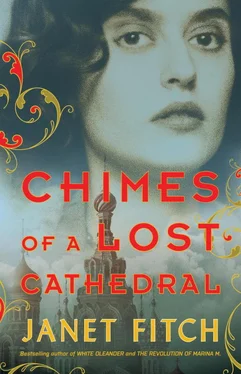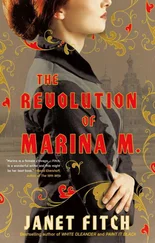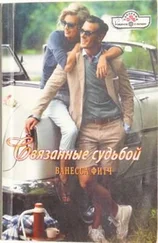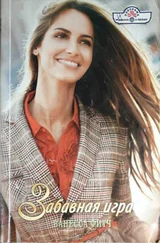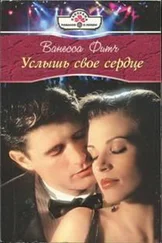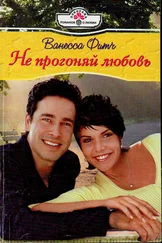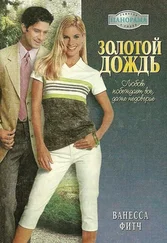What would Sergeevna say if I told her Raisa Filipovna had thrown me out? I could denounce Korsakova as counterrevolutionary. Look what she’s done to me, a poor pregnant girl with Bolshevik sympathies. A landlord, a bourgeois! But I could never do such a thing. Even I had lines I would not cross. She was just trying to protect her child in her idiotic way. It was true, Liza did listen to me, watch me, pepper me with questions, imitate my intonations, my expressions. “She’s a smart girl,” I argued. “I don’t think becoming a pregnant housemaid is part of her plan.”
“Keep your voice down,” she said.
My tears spilled out, confusion and shame. “Raisa Filipovna, please. I won’t deny it. I was lonely, and he was kind…” This poor widow, twisting her ring. Poor Korsakova, listening to us eke out our meager love. Did she envy me my puny pleasures? My one-armed railroad man? If I wasn’t pregnant, I’d walk out right now. I hated having to beg, and yet, what else could I do? “I’ll give him up. I didn’t realize… Please, give me another chance.” She looked so miserable. “I’ll tell him it’s over. You’ll never have cause to doubt me.” I’d earned my respect for the out-of-doors. I needed her more than I needed Styopa. More than I needed Sergeevna or Lenin himself. “Just two more months, I’ll have the baby and be out of your life forever.” Like a shot. Back to Petrograd or whatever was left of it. I’d find my faithless, worthless knight, someone who knew me, who understood my nature, who could even embrace it.
“No,” she said, stiffening her back, drawing her shawl around her. “It’s happening too fast. She’ll be lost by summer. The men already joke behind your back, call you Styopa’s barefoot bride. Liza’s old enough to understand.”
How could this be happening now? The ringing sound of my resistance to this was all I could hear. I wanted to scream, but instead I whispered, “The mother of a child, you wouldn’t really toss me into the street like so much garbage.”
She laughed, just one short bitter churt.
I imagined her, sitting up in bed, listening to me creep down the stairs, knowing that the railwayman and I would be making love as she held her book of morning and evening prayers. I wondered how long it had been since anyone had kissed her. “I’m sorry,” I said. “Forgive me. Please. I’ll give him up. I’ll be a model citizen. I’ll set a better example.” In one last hopeless gesture, I threw myself at her feet, I grabbed her hands and kissed them. I felt like a character out of Dostoyevsky.
“Stop it. Get up.”
How had I not considered her terror that her remaining child would turn out like the other? When, of course, she would, eventually. All girls grew up. But this was my neck we were talking about. My baby.
“Please.” Wetting her hands with my tears. Everything was going against me. I was a gambler on a two-year losing streak. How in the world would I survive? Mother, Don’t Abandon Your Baby! Women everywhere making the same desperate choice.
She pulled her hands away from me. “I run a respectable house. I know that means nothing to you. Nothing means anything anymore. But it does to me.” Talking to her daughter as much as to me. Respectable. That relic. But everyone needed a line they would not cross.
“I promise. I won’t do anything to upset you.” I clutched her hem in my hands, twisting it, crumpling her gown. “You’ve been so good to me. I’m sorry I disappointed you. Your trust.”
“I have to think of my own family.” She rose, breaking my hold. Now she met my gaze. And I could see in her eyes, I was already becoming a stranger. She, next to whom I’d beaten rugs and ground grain, she who had told me the child would be a boy, was already tearing the thousands of silken threads that connected us. The second Fate, who bore the scissors, cut.
She’d given me a week. I had to think of something. I got up in the morning to stand in the bread queue, heavy-eyed, still not quite believing my time at Korsakova’s was over. What was I going to do? I could no longer work as a porter. Anything I did, my pregnancy would make me look like a whore. Who would hire me now but soldiers? When I got to the head of the queue, I asked if there was any work at the bakery, and they looked at me as if I were speaking Japanese. I returned to the boarding house, silently served breakfast, not being able to look anyone in the eye—especially Styopa. My God, Styopa’s barefoot bride. I blushed whenever I thought of it. I cleaned up, but would not talk to Korsakova, though she eyed me pleadingly. Understand. Well, I understood, but I didn’t have to like it.
After dinner, I asked Styopa to take a walk with me, down by the river. The late sun glazed the water, its polished surface erasing the monastery’s reflection, its cupolas and walls. I told him what had taken place in the night with the widow, that they all knew about us, what she had said to me. I had to look for a new position, but work was rarer than beefsteak. “All I can think of is joining the party and letting them ship me off somewhere.”
“Don’t cry,” he said, wiping at my cheek with his thumb. He took my hand in his, drew it to his lips and kissed it. “Let’s move in together. Find a little place. Hell, I should have thought of it sooner.” His eyes were shining. “I get good rations. You wouldn’t be the servant anymore, you’d be mistress of your own house. Put your feet up when you like it. You’d be a queen! What do you say? I’ve had it with the bachelor life. We’d get along fine.”
I wasn’t sure. It was true, we got along well. He was easygoing and kind. Lovable, even. It would be a safe haven. I could see no better option, no other options at all.
We found a place close to the station. A flat above what was once a tavern, abandoned now. And just as he said they would be, things were immediately easier. My chores were light—cleaning and cooking just for the two of us, making our single bed. I queued for bread, brought him his lunch down to the station in a bucket. I sat when I wanted, put my feet up. Like a queen, just as he’d said. And the privacy was truly glorious. I could sit for hours just watching the May clouds lick the blue sky. How delighted he was to come home in the evening simply to find me there, the place clean and orderly, clothes hanging on the line, a bath waiting in a tin tub, dinner scenting the air. I’d wash his hair and pour water over him as he told me what was going on in the war, where the troops were, what went on at the station that day. It didn’t take much to please him. I could make a life here with my railwayman. Styopa’s barefoot bride.
“You should divorce him,” he said, looking at me over the rim of the tub. “Divorce him and marry me. The kid’ll have my name. We could have other ones. I like kids.”
The doves cooed through the open window in the warm evening. He wanted me to really do this. Marry him, have his children, spend the rest of my life here in this railway town. I could. I was one false step away from losing my life here. I tried to keep the panic from my voice. “Let’s see how you like this one first,” I joked, stroking my belly. I was playing house with Styopa now, but marry? He really thought I would divorce Genya and marry him. That would be the natural course of events, settle down with him in Tikhvin and become Marina Radulovich. I cared for Styopa, he was dear, but I did not love him. I rolled him a cigarette with shaking hands, tore the paper, took another one and managed to get it rolled, and stuck it in his mouth below the thick moustache, lit it for him as he steadied my hand with his wet one.
Читать дальше
